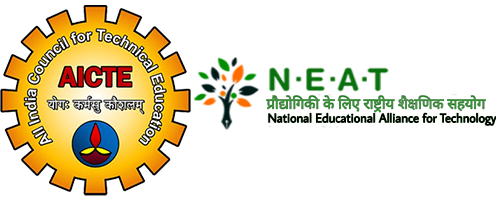WELCOME
Visual-Rich Digital Content with 3D/2D Visual for Self-Learning and Teaching Aid Enhanced Learning Experience - Visually.

Learn Pharma platform is proud to announce to be part of NEAT initiative by MHRD & AICTE.
The aim of NEAT is to bring the best technological Products in education pedagogy on a single platform for the convenience of learners
NEAT applauds Learn Pharma for its commitment to innovation, accessibility, student success and its transformative impact on education.
AICTE approval states that our program adheres to guidelines specified related to Edu structure, curriculum, teaching methods, and other aspects of technical education.
Our Facilities
What we offer
Worlds 1st
3D classroom
knowledge that extends beyond the classroom
11
Years Experience
In 3D 2D modeling
48
PHARMACY SUBJECTS
Customizable as per Needs
1600
MINUTES OF VISUALS
3D Based Demonstrations including Industrial and Real life Examples
2000
LECTURE HOURS
Customised Visual Rich Content
ACADEMIC APPROACH

Student:
- Improved Comprehension and retention.
- Better attention and attendance in the class room.
- Significant improvement in score of the average student leading to Positive shift in Mean Score of the class.
- The students would respond better to 3D Visual medium and this stimulation trigerring higher order thinking skills in them.
- The product takes away the boredom of passive lecture notes and brings in diversity through the multimedia and inter-personal nature of the product, with participation both by the teacher and the taught. Hence, resulting in more attention of the students in the class room.
- Language independence.
- Making them Industry-ready.
Teachers:
- Best practice followed by the experienced teachers available to conduct the class.
- Better quality of material available for explanation.
- Standardisation of the course content and flexibility to introduce well researched material.
- Time to complete the course is reduced which can be used for tutorial etc.
- Since the teacher would spend little or no time on blackboard writings, they will have more time for problem solving, as well as discussing university examination papers.
- The product would fast-track the process of developing effective and efficient teachers.
3D/2D visuals are well annotated in simple English so that the students from rural areas and those who have studied in their vernacular language in school, could clearly and quickly understand and comprehend the Technical concepts and applications and thus circumventing language dependence and enhances the pass % both in the examination and employability, of even weaker students from different environments.
OUR WORK
Human Anatomy and Physiology
Human anatomy and Physiology studies the structure
and functions of the human body, encompassing organs, tissues, bones, and their relationships,
focusing on processes like respiration, circulation, digestion, and reproduction.
Whereas in pharmaceutical sciences, it provides a foundation
for understanding drug interactions within the human body.
It aids in drug development, dosage determination, and assessing drug efficacy and safety.
Knowledge of anatomy and physiology is essential for pharmaceutical research,
drug formulation, and clinical trials.
Pharmaceutical engineering
Pharmaceutical engineering combines engineering principles with pharmaceutical sciences to design,
optimize, and control processes for drug manufacturing. It encompasses drug development,
formulation, manufacturing, quality control, and packaging.
Pharmaceutical engineering plays a vital role in the pharmaceutical industry,
facilitating the production of high-quality medications essential for improving global healthcare.
Microbiology
Microbiology in pharmaceutical sciences focuses on studying microorganisms like bacteria,
viruses, and fungi to ensure product safety and efficacy.
It involves quality control testing, microbial contamination prevention, and development of antimicrobial drugs.
Microbiological knowledge is essential for pharmaceutical research, manufacturing,
and regulatory compliance in the industry.